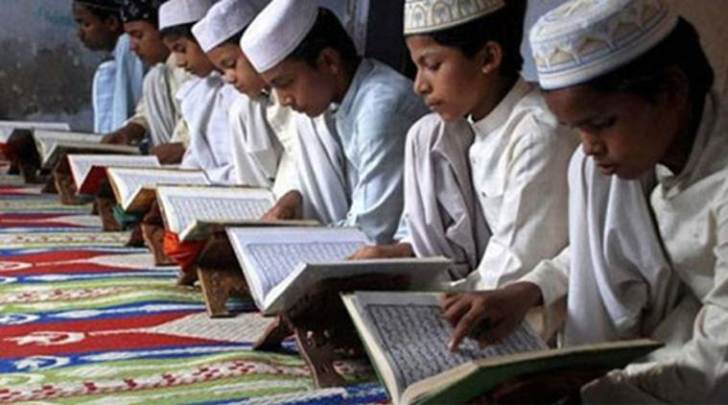Education has become very essential to survive in the modern world. Quality education is a must for any country which is looking forward to development of human capital in today’s world. The Indian Constitution and the central government give a lot of importance on developing the education system in India. There is, however, a few key points which are needed to be fixed in order to make the education system function better. The Constitution of India in Article 21 (A) provides the right to education to children between six to fourteen years of age. Article 30 of the Constitution also provides minorities the right to establish and administrate educational institutions. There is no doubt that these rights have helped developing in the education system of the country but we cannot ignore the fact that it has also led to the poor quality of education being provided in the institutions run in the Madrasas throughout India. There are approximately 2.5 crore students enrolled in various Madrasas throughout India. There are serious questions being raised by the Child Rights panel regarding the quality of education being provided in these Madrasas. National Commission for Protection of Child Rights (NCPCR) has conducted a mapping of Madrasas in India over a period of three months. It turned out that the quality of the education system which is being offered by these institutions is sub par.
After this extensive research, member of National Commission for Protection of Child Rights (NCPCR),Priyank Kanoongo said, “While Article 21 (A) of the Constitution provides the right to education to children between 6-14 years , Article 30 allows minorities to establish and administer educational institutions, but there is a conflict in these two rights as the education being imparted in Madrasa is outdated and not in tune with modern times which means that for all practical purposes a large number of students in the country are missing out on basic education,”. “The government should therefore make some change in the law to address this concern and modernize Madrasas”.
NCPCR team has reviewed Madrasa and other Missionary school institutions running in the states of Uttar Pradesh, Haryana, Maharashtra, Andhra Pradesh and Jharkhand among others. The report submitted to the Ministry came after the NCPCR team was not satisfied with the quality of education being imparted. NCPCR also said that the students studying in Madrasas should be thought “as good as out of school students”. NCPCR had already raised this issue in February in a sub-committee meeting of the Central Advisory Board on Education (CABE). The Commission decided to raise this matter once again and also asked for more grants in order to continue the survey of Madrasas in other states. The opinions of NCPCR team match the concerns raised by Uttar Pradesh Chief Minister Yogi Adityanath. Yogi Adityanath government had taken the step to introduce NCERT books in Madrasas in UP in October 2017. In order to make the Madrasa students more competitive and for better quality education, CM Yogi’s government has introduced mathematics and science compulsory at intermediate level in Madrasas.
Students are the backbone of a country, the quality of education being imparted at Madrasas is not enough to make them educationally fit in the contemporary world. CABE should take immediate steps in order to improve the quality of education being given to the millions of children in Madrasas. This is an issue which demands immediate and urgent solution. The Center and CABE should keep in mind that for each day it delays the reforms needed in Madrasa education system, millions of students will continue getting sub par education. The number of youngsters with low quality education has been growing year after year owing to government’s non-interference in the institutions run by minorities. The country cannot afford to be relaxed in matters of education. The religious institutions need to realize the importance of imparting knowledge which will help the students in the contemporary world. CABE and the Ministry should take all the necessary measures to ensure this happens as quickly as possible.
